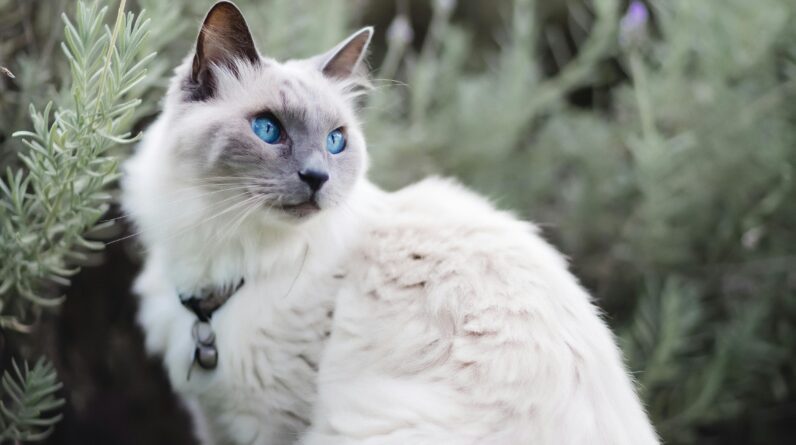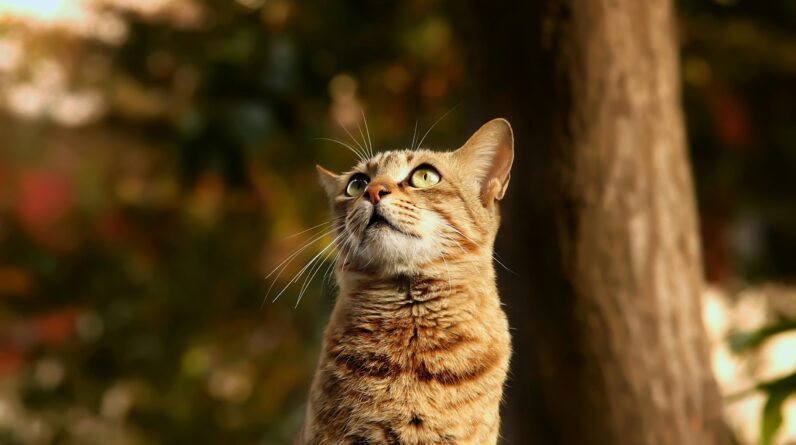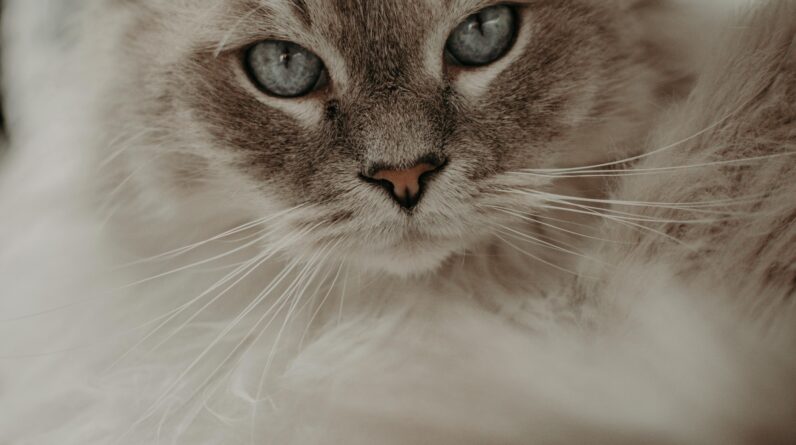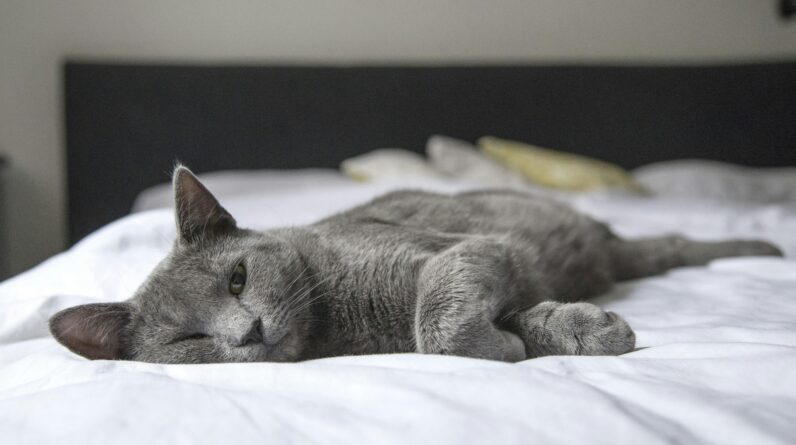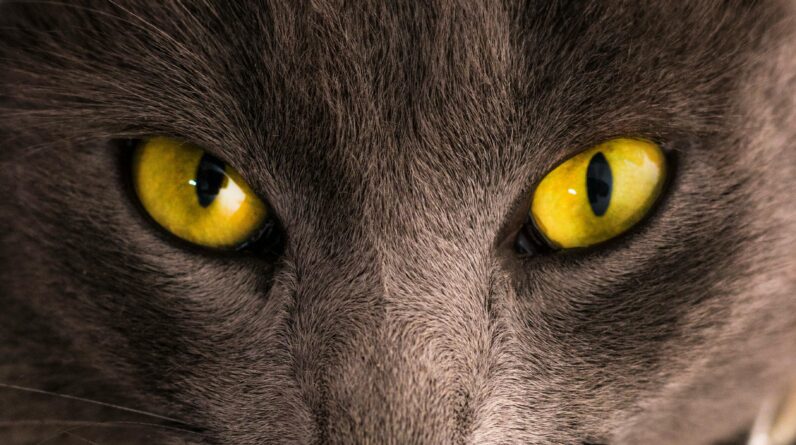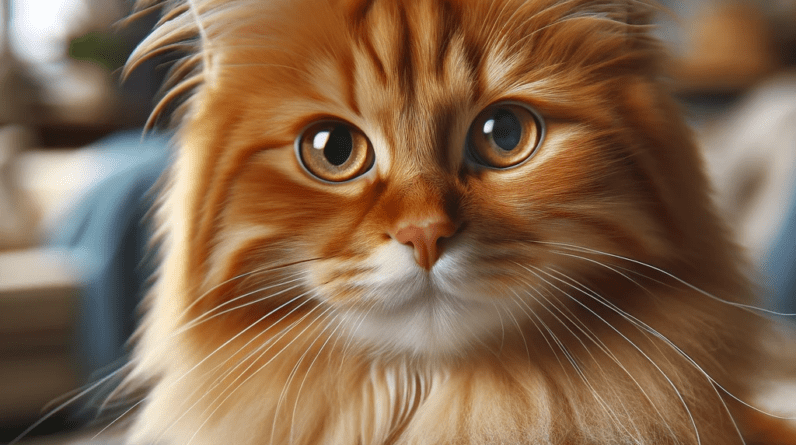
Ginger Cat Coat Health: An Essential Guide
Ginger cats, with their vibrant and eye-catching coats, are a favorite among cat enthusiasts.
However, maintaining the lustrous health of their fur requires specific care.
Understanding the nuances of ginger cat coat health is crucial for ensuring these felines not only look their best but also stay healthy.
Understanding Ginger Cat Coats
Ginger cats have a unique charm.
Their fur color is a result of genetics.
This color can be bright orange or deep red.
Some ginger cats have pale yellow fur.
Others have a rich, deep red tone.
Their coats often have patterns.
These patterns can be stripes, swirls, or spots.
Each ginger cat’s markings are unique.
This makes every ginger cat special in its appearance.
No two ginger cats look exactly the same.
Their distinct look is one reason they are so popular.
People love the variety and beauty of their coats.
Ginger cats stand out because of their vibrant fur.
They are not just pets; they are like living art.
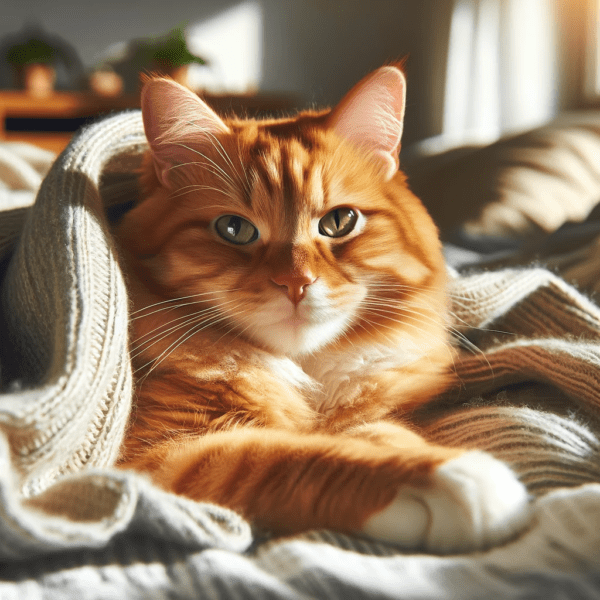

Common Coat Health Issues in Ginger Cats
Ginger cats can have coat problems. Here are some common issues:
Dry or Dull Coat
A healthy diet is important. Without good food, their coat can lose shine.
Water is key. Not enough water can make their fur dry.
A dull coat can mean health issues. It’s a sign to check their diet and hydration.
Matting and Tangles
Their fur is thick. It needs regular brushing.
Without brushing, knots can form. These knots are hard to untangle.
Mats in their fur can be painful. They can also hide skin problems.
Skin Issues
Some ginger cats have sensitive skin. This can lead to problems.
Allergies are common. They can cause itching.
Look for signs of flaking or red skin. This means their skin needs attention.
For each problem, there are solutions:
Improve their diet for a better coat.
Brush them regularly to prevent mats.
Check their skin often. If you see issues, a vet can help.
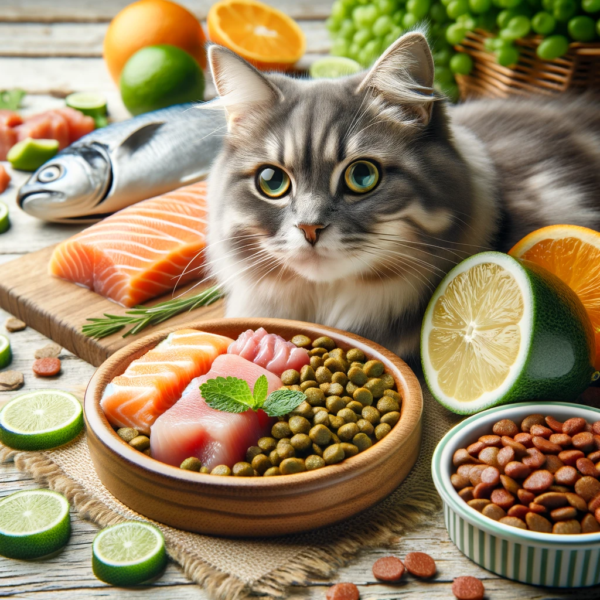

Nutrition for a Healthy Coat
A good diet is important for ginger cats. Here’s what their food should have:
Omega-3 and Omega-6 Fatty Acids
These fats make their coat shiny.
They also keep their skin healthy.
You can find them in fish and some cat foods.
High-Quality Protein
Protein helps their fur grow.
It also repairs damaged fur.
Good sources are meats like chicken and fish.
Vitamins and Minerals
Vitamins A and E are vital. They are good for their skin.
Minerals help overall health.
Many cat foods have these nutrients.
Remember:
Read cat food labels. Look for these nutrients.
Sometimes, supplements are needed. Ask your vet.
A balanced diet keeps ginger cats looking and feeling great.


Regular Grooming Practices
Taking care of a ginger cat’s coat involves two main steps:
Brushing:
Brush your cat 2-3 times a week.
This removes loose, dead hair.
It also spreads their natural oils.
These oils make their coat shiny and healthy.
Bathing
Give them a bath now and then.
Use a shampoo made for cats.
This keeps their fur clean.
It also helps prevent skin problems.
Remember:
Be gentle when brushing. It should be enjoyable.
Not all cats like water. Be patient with bathing.
These steps keep your ginger cat’s coat in top shape.
Dealing with Skin Issues
Taking your ginger cat to the vet is important. Here’s why:
Veterinary Check-ups
Regular visits help find skin problems early.
Vets can spot issues you might miss.
Early treatment can prevent bigger problems.
Allergy Awareness
Watch for allergy signs in your cat.
Excessive scratching is a common sign.
Bald patches are another clue.
Allergies can be to food or things in the environment.
Keep in mind:
Regular vet visits keep your cat healthy.
Knowing allergy signs helps catch them early.
If you see these signs, talk to your vet. They can help.
Environmental Factors
Ginger cats need protection from the sun and temperature extremes. Here’s what to do:
Sun Exposure
Ginger cats can get sunburnt, just like people.
Keep them out of strong sunlight.
Use cat-safe sunscreen if they go outside.
Temperature
Too hot or too cold isn’t good for them.
Their coat can suffer in extreme weather.
Make sure they have a cozy place inside.
Remember:
Shade is important in summer.
In winter, they need a warm spot.
Taking care of their environment keeps their coat healthy.
Ginger cat coat health is a blend of proper nutrition, regular grooming, and awareness of potential skin issues.
By understanding these key aspects, cat owners can ensure their ginger cats not only dazzle with their beautiful coats but also enjoy a life of health and vitality.
Remember, a healthy coat is a mirror of a cat’s overall well-being.
FAQs:
Q1: Why do ginger cats have unique coat colors?
A1: Ginger cats have a specific genetic trait that gives them their unique orange or red fur.
The intensity of the color can vary from pale yellow to deep red.
Q2: How often should I brush my ginger cat’s coat?
A2: You should brush your ginger cat’s coat 2-3 times a week.
This helps remove dead hair and spreads natural skin oils, keeping their coat healthy.
Q3: Are ginger cats prone to skin issues?
A3: Yes, ginger cats can have sensitive skin which may lead to issues like itching, flaking, or allergies.
Q4: What kind of diet is best for maintaining a healthy coat in ginger cats?
A4: A balanced diet rich in omega-3 and omega-6 fatty acids, high-quality protein, and essential vitamins and minerals (like vitamins A and E) is best for a healthy coat.
Q5: Is it necessary to give my ginger cat baths?
A5: Occasional baths with cat-specific shampoo can keep their coat clean and healthy, but it depends on the cat’s lifestyle and personal preference.
Q6: How can I protect my ginger cat from sunburn?
A6: Limit their exposure to direct sunlight, especially during peak hours.
You can also use cat-safe sunscreen if they spend time outdoors.
Q7: What should I do if I notice signs of allergies in my ginger cat?
A7: If you notice signs like excessive scratching or bald patches, consult your veterinarian for advice and possible allergy testing.
Q8: Can extreme temperatures affect my ginger cat’s coat health?
A8: Yes, extreme hot or cold temperatures can affect their coat health.
Ensure they have a comfortable and stable environment.
Q9: How important are regular veterinary check-ups for coat health?
A9: Regular veterinary check-ups are crucial as they can catch skin and coat issues early, leading to more effective treatment.
Q10: What are the signs of a healthy ginger cat coat?
A10: A healthy ginger cat coat is shiny, smooth, and free of tangles or mats.
The skin should also be free of flaking, redness, or bald patches.




